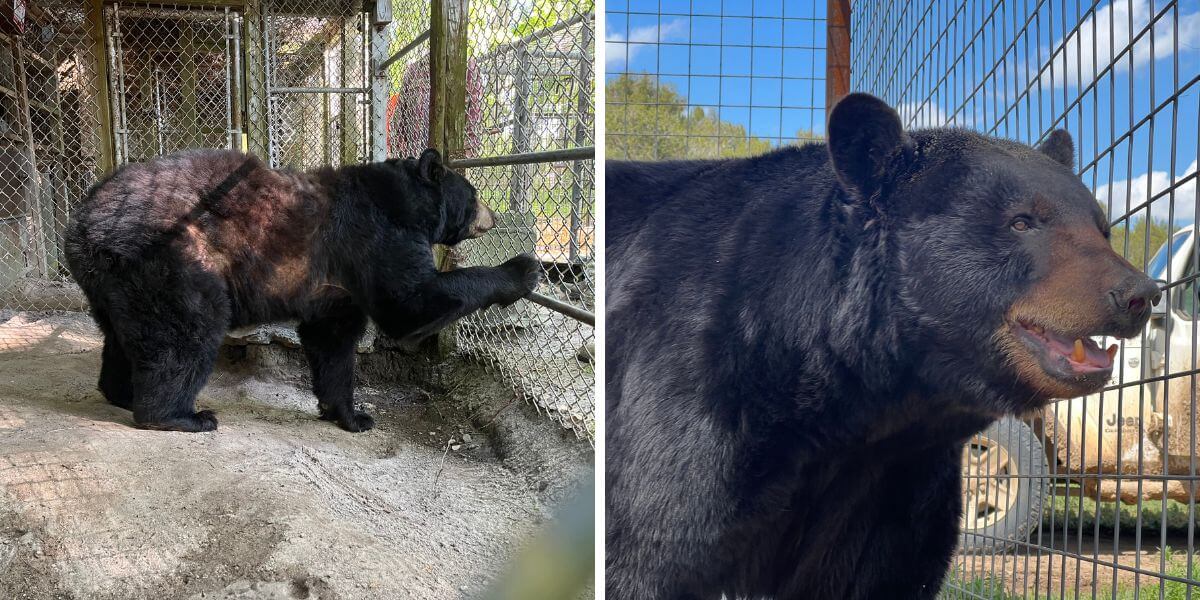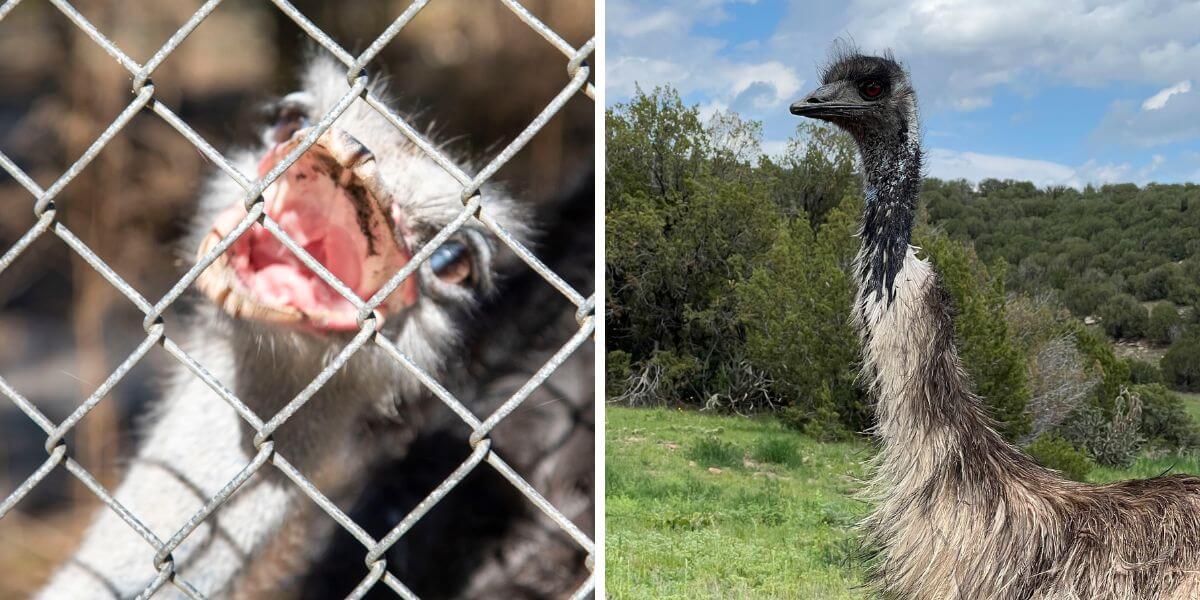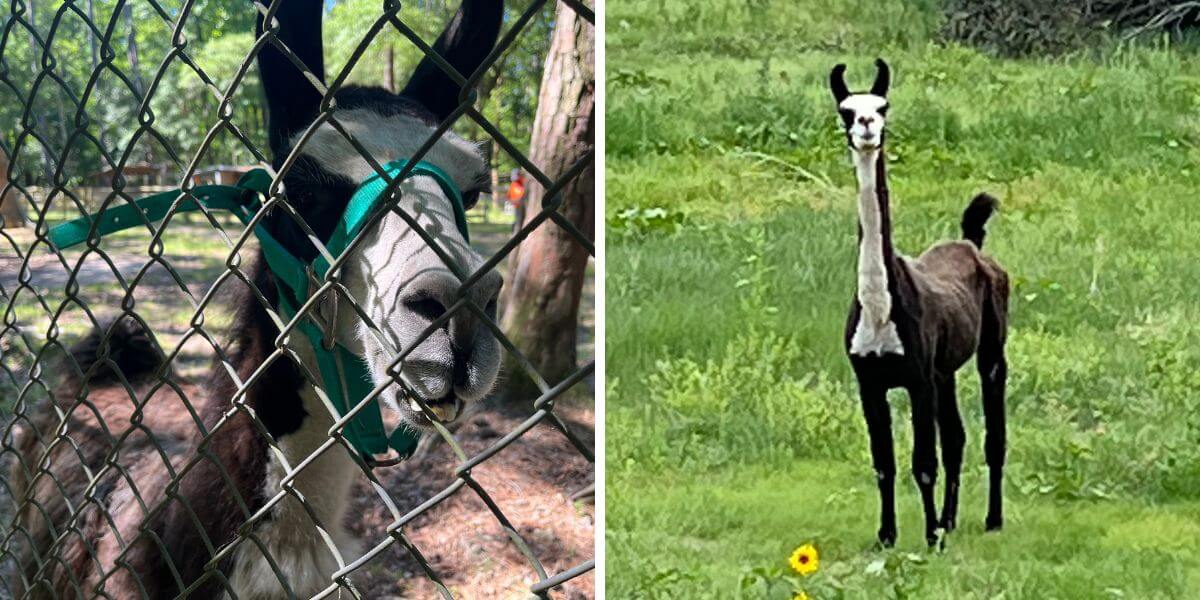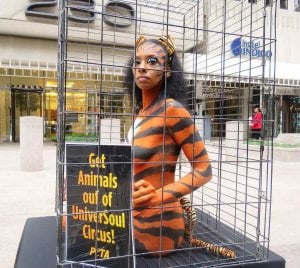Care Bear and Shortcake were underweight, plagued with chronic skin issues, and had lost patches of fur. The black bears were suffering mentally, too, with little to do but pace in a cramped, barren cage day after day at South Carolina’s Waccatee Zoo, which PETA dubbed “the worst roadside zoo in the US.”
But after a hard-fought PETA campaign and a game-changing lawsuit, Care Bear, Shortcake, and other animals were rescued from their miserable prison cells and sent to The Wild Animal Refuge in Colorado. Safe at last, they can relish the wide-open spaces, explore, play, take refreshing dips in their new pool (for the bears) and experience the joy they’ve long been denied.
And the Waccatee hellhole? It’s history. Here’s the inside story:
 Right – © The Wild Animal Refuge
Right – © The Wild Animal RefugeBaboons, Birds, and Others Wallowed in Slime
Much like the archaic “insane asylums” that were deemed inhumane, Waccatee confined many animals to extremely small spaces with little to do. Many cages had exposed nails, rotten floorboards, and slimy resting platforms. Even in below-freezing temperatures, animals were found without adequate bedding and had no significant structures to protect them from the elements.
Some animals were left with nothing to do all day and virtually no opportunity to socialize with others, driving them to despair. Baboons, who are natural mischief-makers and enjoy tumbling about with their troops, were kept alone in small cages at Waccatee. A baboon named Lil Trix obsessively rocked back and forth, and another named Handsome spent his days rolling his head and turning in circles in his cramped space – both repetitive actions clear signs of distress.
A lion named Simba had suffered for years with severe weakness and lack of coordination in his rear legs, likely caused by malnutrition or illness. Parrots plucked themselves raw from severe psychological distress, and neglected zebus, goats, aoudads, and llamas were found with overgrown hooves, which can cause pain and difficulty walking. Animals were denied veterinary treatment for bleeding lesions, crusty scabs, wheezing, and lameness. And Sha Sha, a pig-tailed macaque, suffered from an inappropriately treated ocular condition and could barely open her eyes.
 Right – © The Wild Animal Refuge
Right – © The Wild Animal RefugeHow the Nightmare Ended
PETA campaigned hard against Waccatee, running ad blitzes urging people to stay away, alerting authorities to criminally neglectful conditions, and calling for USDA investigations and the roadside zoo’s closure. Yet despite racking up more than 100 federal Animal Welfare Act violations, Waccatee stayed in business, profiting from every ticket tourists bought.
But finally, a breakthrough: Two visitors were so appalled by the conditions at Waccatee that they joined PETA to file a civil lawsuit against the facility and its operators, alleging violations of both the federal Endangered Species Act and the state’s public nuisance law. This prompted Waccatee to close to the public.
Not long after the suit was filed, PETA learned that Waccatee was secretly moving animals to other decrepit facilities. PETA filed an emergency court motion to prohibit the remaining animals from being transferred out. The court granted the request, and PETA got the nine remaining captive animals out of there forever.
 Right – © The Wild Animal Refuge
Right – © The Wild Animal Refuge
A New Life
Every one of the rescued animals is now safe and has access to appropriate veterinary care. And more good news: PETA and Waccatee reached a settlement that will keep the roadside zoo permanently closed and blocks Waccatee’s operators from owning or exhibiting exotic animals (aside from free roaming peacocks already on the property), breeding animals for profit, or working at other roadside zoos ever again!
Be Part of It!
Deplorable conditions are the norm at roadside zoos, and visitors keep them in business. Never buy a ticket to any animal “attraction.” And help PETA save even more animals by supporting our Investigations & Rescue Fund.
The post Care Bear, Shortcake, and Others Rescued From Notorious Roadside Zoo appeared first on PETA.



